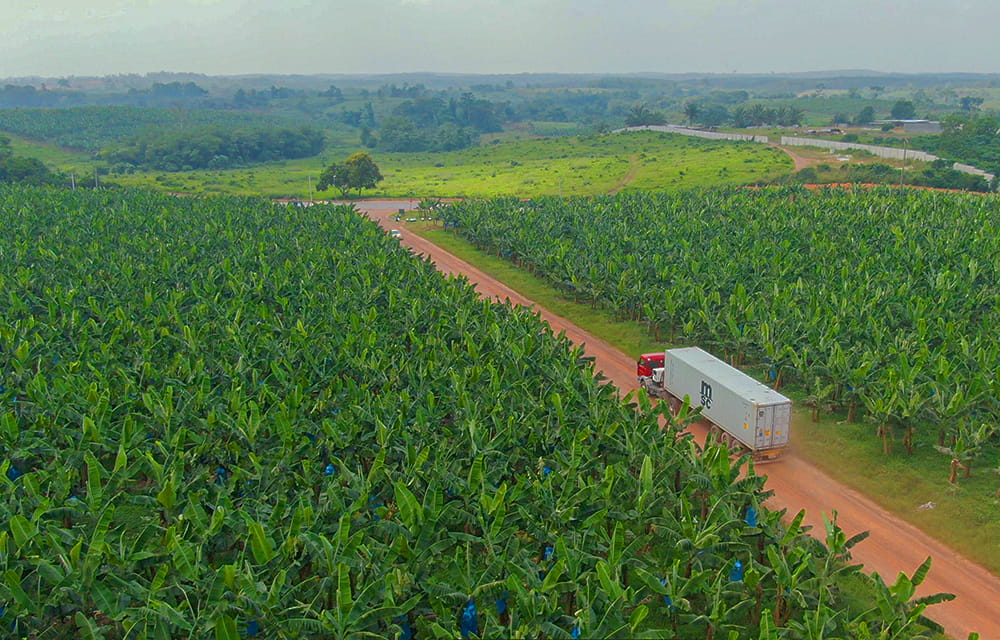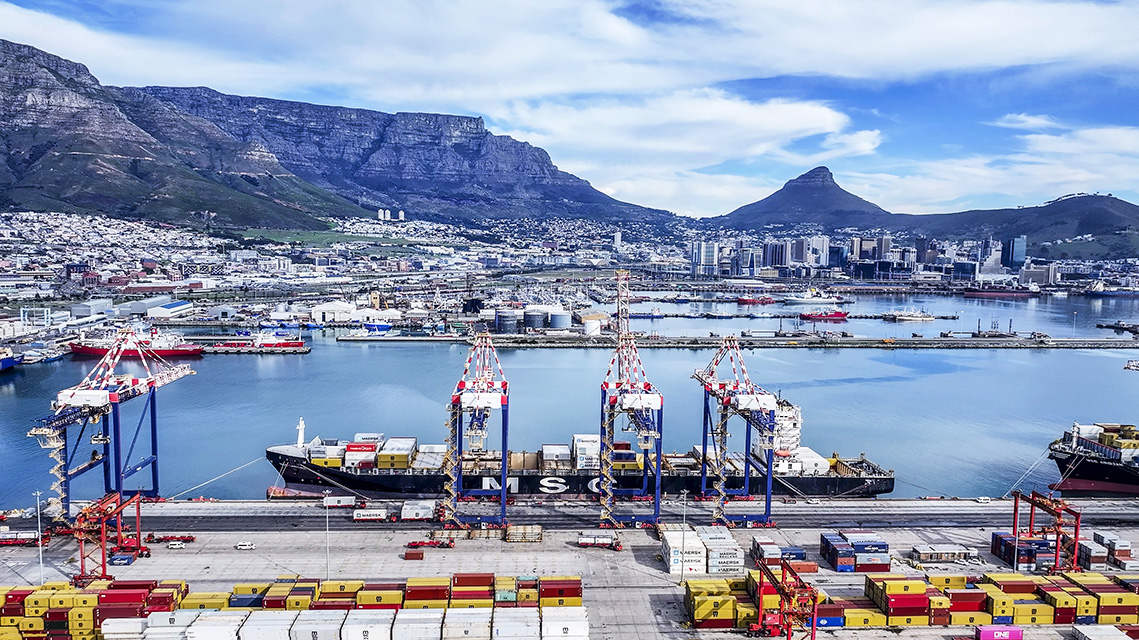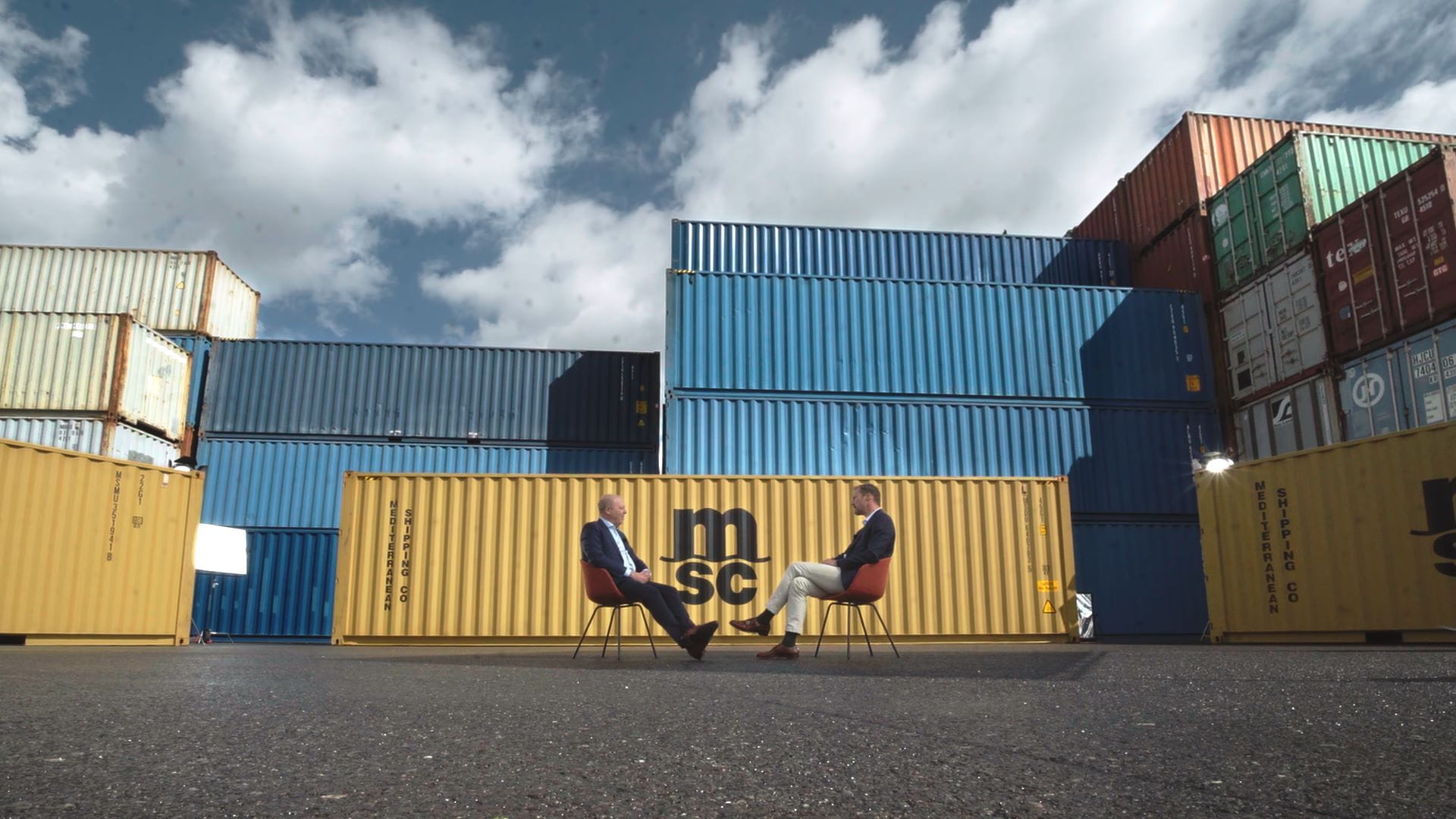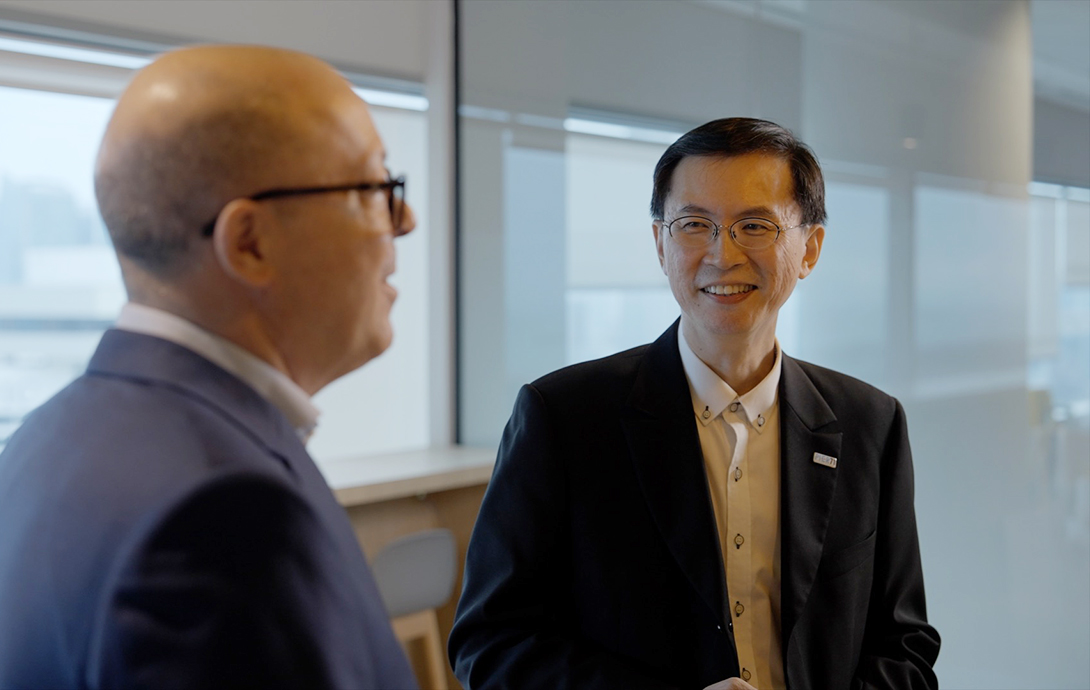
/ru/newsroom/stories/digital/2023/msc-digital-talks-ep-6-data-sharing-and-cyber-security-at-the-usas-largest-port
MSC Digital Talks Ep. 6: Data-sharing & Cyber-Security at the USA’s Largest Port
02/05/2023
In the latest episode of our #MSCDigitalTalks series, MSC’s CDIO André Simha meets Gene Seroka, Executive Director of the Port of Los Angeles, to talk about how the port information-sharing system benefits the whole supply chain. As digitalization in LA Port continues to expand, cyber-security is a important topic of their discussion.
As the USA’s largest container port with 9.9 million TEUs handled in 2022, LA Port’s cargo operations generate a huge amount of data. Several years ago, Gene Seroka, Executive Director of the Port of Los Angeles, and his teams realized that sharing this information with customers, partners and stakeholders could bring benefits across the supply chain, and even to end consumers.
Sharing real-time shipping data and insights
The port launched its own data-sharing system, the Port Optimizer™, in 2017. This cloud-based platform delivers real-time shipping data and insights to supply chain stakeholders through a single, secure portal. It enables each party to make faster, data-driven decisions and better serve their own customers. MSC is an active participant.«
The Port Optimizer™ simply aggregates all the data elements that exist out in our business today and puts it into one screen, so our customers, partners and stakeholders can do their jobs better and faster.
»
The port also places a strong emphasis on cyber-security. In 2014, it became the first port in the world to implement a state-of-the-art Cyber-Security Operations Centre (CSOC) in collaboration with the United States Department of Homeland Security. Today, the CSOC stops 40 million cyber intrusion attempts every month.
About the Port of Los Angeles
- USA and North America’s largest port
- 2022 trade volume: 9.9 million TEUs
- 3,000+ hectares (7,500 acres) of property
- 70km (43 miles) of waterfront
- About 40% of US imports and 30% of imports pass through Long Beach and LA
Join the conversation
The #MSCDigitalTalks video series features conversations with leaders and experts at the forefront of the shipping industry’s digital transformation.
Follow André Simha and #MSCDigitalTalks on LinkedIn to watch the latest episodes and join the conversation.
About MSC's digital solutions
Interested in learning more about how digitalization is transforming the shipping experience for MSC’s customers? Explore our digital solutions.
Read Episode 6 Transcript
INTRODUCTION
Andre Simha: Hey, Gene, great to see you.
Gene Seroka: Thanks for coming in today.
Andre Simha: Thank you for joining us.
Gene Seroka: This port of Los Angeles, Andre, is so impactful on the nation’s economy, jobs, the prosperity of the country. Cargo growth is really key to everything. So, if we can make data-driven decisions based on facts and get that information faster so others can make their decisions. Here in America, we've got a saying. We have a microwave mentality. Everything has to happen fast.
André Simha: So here we are, Port of Los Angeles, doing one of our digital talks. Can you describe a little bit what is the port of Los Angeles? How does it operate? And then maybe we can dig in a little bit into the digital questions.
Gene Seroka: This port of Los Angeles, Andre, is 7500 acres of property, 3100 hectares, 43 miles of waterfront on 70km. It's got eight lines of business. Our shipping business is the largest here. And this engineering marvel, as we've described it, really is so impactful on the nation's economy, jobs, the prosperity of the country. About 40% of the country's imports come through this gateway of Long Beach and Los Angeles, about 30% of the exports. But the real kicker to all of us here is that the cargo that traverses the port of Los Angeles reaches each and every one of our nation's 435 congressional districts. So, this truly is a conversation of national importance.
Andre Simha: It's huge. So, in that respect, what are the core components of your digital strategy? And how do you leverage all these digital tools to grow the cargo operations and to make the port of L.A. even more successful?
Gene Seroka: You've just hit on it. Cargo growth is really key to everything. If we're a strong port and we're strong financially for our customers, we can keep investing. But it also allows us to take this outsized responsibility on improving the supply chain. In its purest form, here in California, we're a real estate company. We lease our property out to great companies like yours to facilitate international trade, visitor-serving, retail, dining, entertainment and other business. And we thought by using all of these supply chain nodes together and sharing information might make us a better port. And so, we created this Port Optimizer, this port community information sharing system, which simply aggregates all the data elements that exist out in our business today and puts it into one screen so our customers, our partners and stakeholders can do their jobs better and faster for the ultimate work at this port.
Andre Simha: You said 'sharing' and you said 'together'. So, two of my favorite words.
SHARING INFORMATION AND BEST PRACTICES WITH OTHER PORTS (03:12)
Andre Simha: You think that this is something that's going to be adopted by the other ports, not in the area, but I guess in the US and the key ports?
Gene Seroka: Yeah, the conversation is much more frequent than it's ever been about how port information sharing systems can benefit the supply chain and all of our partners. There are a lot of folks that were skeptical, some hesitant. You have some laggards when it comes to technology. Even folks that don't want to adopt it because they like their place in the market today. But here in America, we've got a saying, we have a microwave mentality. Everything has to happen fast. And by curating this data, it's our plan to allow stakeholders and partners to make their decisions faster and the demands of our mutual customers and their customers, the American consumer, all play into this as well. So, if we can make data-driven decisions based on facts and get that information faster so others can make their decisions, I think we're adding value to the supply chain community.
Andre Simha: 100% with you on that.
THE IMPORTANCE OF STANDARDS AND INTEROPERABILITY (04:19)
Andre Simha: You mentioned the fact that to get this data to be more widespread, to be shared with other ports and other stakeholders, you need standards. And I know that's something that you found extremely interesting. Initiatives like the Digital Container Shipping Association. Tell me a little bit more about that. I'd love to hear what you think.
Gene Seroka: We've been working on this data-sharing concept for about seven years now. And what I found is that maybe one system at each port or the expansion of the Optimizer across many ports is not necessarily required today, but interoperability is. So, if we want to be able to talk between ports, share information on what's coming and going, that's a key piece of this. So, I'm encouraged by the conversations we've been having. I love seeing what best practices we can replicate here that could maybe help some of the other ports around the around the globe.
Andre Simha: That is such a positive message
TALKING CYBER-SECURITY AT NORTH AMERICA'S BIGGEST CONTAINER PORT (05:25)
Andre: Gene, a tough question. With all that data flowing around, whether it's on land or in the cloud, what about cyber-security?
Gene Seroka: Oh, Andre, it's front of mind every day. Knowing the data would become more prevalent, how do we make sure we take care of it and protect it from unwanted entrants? Back in September of 2014, we opened up one of the first cyber-security operations centers for a port. The CSOC was a collaboration between the United States Department of Homeland Security and the Port of Los Angeles.
And today that center, we call it a CSOC* is stopping 40 million cyber intrusion attempts a month. I'm so proud of the work that we're doing. It's built off the FBI's neighborhood Cyberhood Watch programme. So, there's a federal framework. In addition, all of the staff who are City of Los Angeles employees that run the CSOC are ISO 27,001 certified and going through ongoing training to keep up their credentials and their work efforts. So proud of this. The success in this area has highlighted the need to bring our partners, our private sector stakeholders into this. So, we developed, and just in December opened up one of the first cyber resilience centers. And it's meant to be an early warning system. It's shared throughout the entire CRC* community.
Andre Simha: I mean, you've said it's unfortunately something which is growing; this is something we need to monitor. I think the sharing is something which is extremely important, and we need to do more of that.
Gene Seroka: You're exactly right. And I like to say that I don't know what I don't know. So, I really enjoy the fact that we have big thinkers around this: internationally, domestically and right here at home, from law enforcement to private sector and technology specialists. And this is the way we're going to learn by collaborating, sharing information and best practices and starting to see around corners and over hills as to what the next unknown could be.
André Simha: Absolutely
Gene Seroka: And I'm so grateful for the relationships that have been developed between our two companies. Yours has been an active participant not only in our Port Optimizer here in Los Angeles, but in the DCSA that we talked about, and in the green shipping corridors. Participation from MSC is just tremendous. So, we're very grateful to the MSC family for the friendship and collaboration, and we look forward to many more years of great stories like this to come.
Andre Simha: That's very, very kind words, which I will bring back when I go home. So, thank you so much, Gene. It was really good to talk to you.
Gene Seroka: Well, thank you for coming to California Andre, so great to see you, and I appreciate all your work.
Andre Simha: Thank you very much Gene.
*CSOC: Cyber-security Operations Centre
*CRC: Cyber resilience centers




